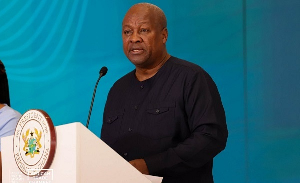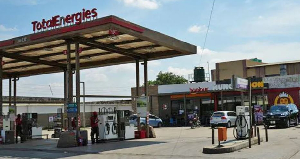With the exception of the great Pyramid of Giza, the seven wonders of the ancient world now belong to history. The massive castle of Mausoleum in Bodrum, south-west of Turkey though stand today, is not in its original form, only the foundation remains of the once magnificent wonder. The legendary Hanging Gardens of old Babylon; the statue of Zeus in the ancient town of Olympia, Greece; and the temple of Artemis in the ancient city of Ephesus, Turkey; once earned their reputation as great monumental achievements of men. Today, they are non-existent, and this confirms the transitory nature of all man-made achievements. Natural disasters such as fire, drought, lightening, flood, tornadoes, earthquake, and hurricane among others, are destructive factors that terminate the works of man. Therefore the thought of any man-made edifice intended to last forever can be visualized as a figment of man’s imagination.
This scenario depicts the grimy state of the Akosombo dam – an immense and essential edifice in Ghana. Presently, majority of Ghanaians lives in total darkness as a result of total blackout; industries are operating below their maximum levels, and productivity in public and private sectors are below average. The economy and social life is gradually grinding to a halt; the reason: low water level of the Akosombo dam.
According to the Volta River Authority, the dam requires water level of 278.00 feet to operate at maximum capacity but the current water level is just around 240.00 feet. In actual fact, this is not the first time the country is witnessing energy crisis following low water level of the Volta Lake. Beginning from 1998, the dam has experienced inconsistent water level, which often leads to electricity shedding across the country year after year. Several factors have been attributed to this phenomenon. It is believed that the construction of the Ziga dam in Burkina Faso on the tributaries of the Volta River has affected water inflow to the dam. The situation is also believed to be climate-induced because the drought season hinders adequate flow of water to the dam.
For whatever reason, it is pathetic that we have failed as a nation to address this recurrent low water level saga of the Volta Lake over the years. Instead, we are always concerned with finding causes other than solutions. This attitude portrays us a nation without direction and purpose; behaving like the proverbial vulture who promises to build a shelter only when the rains come. Do we really lack men of vision and fore sight who can envisage problems and plan ahead? Is it not a sad story for Ghana to now look to other countries for the supply of electric power? This is the challenge of our time, and the earlier we take pragmatic measures to find a lasting solution to this energy problem, the better it would be for us as a nation.
The Akosombo dam, constructed in 1965, and reputed as the largest man-made lake in the world has helped in the economic development of Ghana. It has provided adequate supply of electricity to local industries, urban centers, villages, and to other neighboring countries during the past 41 years. However, the dam has witnessed inconsistent water level for considerable number of years, and on each occasion leaving negative effects on the socio-economic life of the country. The present condition of the dam is a clear signal that the better days are over, and like all man-made achievements, they are never enduring. The dam has operated under unfavorable conditions (low water level) for many years now, and this has shortened its life-span. The situation requires urgent attention for alternative source of energy generation to support the dam, and the importance of such a decision cannot be over-emphasized at this time.
Under the present circumstances, it is suggested that an Energy Commission be set up to explore alternative sources of electricity generation from solar energy, biogas, and other micro systems to support the Akosombo dam. This should be given higher priority to save our crippling economy.















